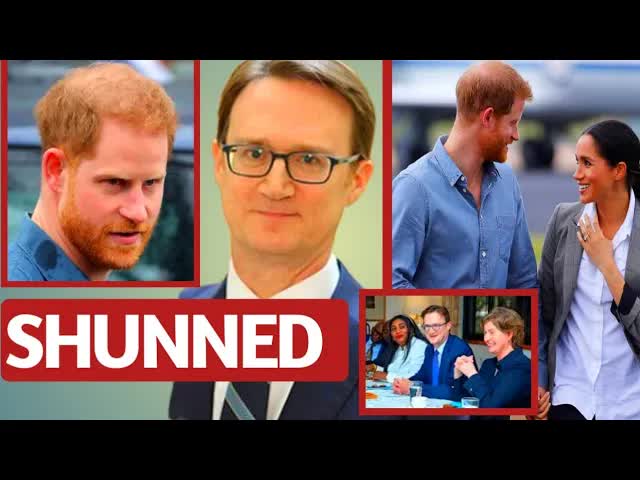Prince Harry and Meghan Markle recently visited Nigeria, where they received a warm welcome and engaged in various activities.
However, their visit did not receive any acknowledgment from the British High Commission, leaving many puzzled as it diverged from the usual protocols for welcoming distinguished individuals from the UK to foreign nations.
The silence maintained by the Commission on social media regarding this matter has sparked speculation about the reasons behind such behavior.
Upon their arrival in Nigeria’s capital, Prince Harry and Meghan were greeted by military officials and went on to explore Abuja’s defense headquarters before continuing their journey to Kaduna State.
There, they had a meeting with Governor Yabesani, who presented Prince Harry with a traditional outfit as a souvenir.
Despite the significance of their visit, the British High Commission chose to remain silent on social media, prompting questions about why the couple’s presence was disregarded throughout their trip.
In an interview with the News Agency of Nigeria, Richard Montgomery, the British High Commissioner to Nigeria, clarified that Prince Harry and Meghan’s visit was personal and not official.
He explained that the British High Commission was not responsible for arranging or facilitating their itinerary since the couple was not representing any official British work during their stay in Nigeria.
During his time in Kaduna, Prince Harry emphasized the importance of sports in rehabilitating wounded soldiers in Nigeria.
He met with injured and ill men and women who had served in the Nigerian Armed Forces, highlighting the positive impact of sports in boosting morale and aiding in the recovery process.
Prince Harry commended Nigeria for being the first African nation to participate in the Invictus Games, an initiative he founded over a decade ago.
In January 2020, Prince Harry and Meghan Markle stepped down from their roles as senior members of the royal family due to intense media scrutiny and constraints that limited their ability to develop their Sussex royal brand within traditional royal duties.
Despite retaining their titles as the Duke and Duchess of Sussex, they relinquished their HRH honorifics and Prince Harry’s military distinctions.
Their visit to Nigeria was scheduled post this tumultuous period as they sought to forge a new path beyond the conventional expectations associated with royal responsibilities.
During their trip to Nigeria, Prince Harry’s decision not to board a flight with other royal family members who were visiting Queen Elizabeth II before her passing garnered attention.
Reports indicated that he insisted on traveling with Meghan Markle to Balmoral, where the Queen was unwell, leading to a disagreement that caused him to miss his boarding time.
This incident raised questions about the dynamics within the royal family, especially as some relatives managed to be by the Queen’s side during her final moments while Prince Harry did not.
The lack of acknowledgment from the British High Commission in Nigeria regarding Prince Harry and Meghan Markle’s visit has generated curiosity.
Despite undertaking private engagements, the couple’s stature and meaningful contributions during their stay make the Commission’s omission perplexing.
Despite the absence of formal recognition from officials, Prince Harry and Meghan interacted with local communities and raised awareness about important issues such as supporting injured soldiers in their recovery process.
As Prince Harry and Meghan Markle carve out an independent path away from traditional royal duties, it is anticipated that public interest in their actions and responses towards them will continue.
